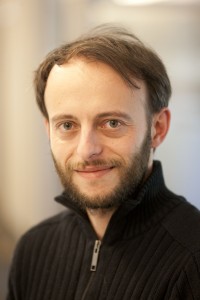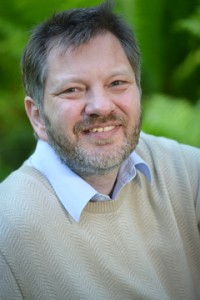“Highly Cited Researchers” at HITS
HITS scientists are listed among the most cited researchers worldwide. This year’s “Highly Cited Researchers” ranking by Clarivate Analytics again lists Tilmann Gneiting (Mathematics) and Alexandros Stamatakis (now in the new category “Cross-Field”).
Two researchers from the Heidelberg Institute for Theoretical Studies (HITS) belong to the most cited researchers worldwide, based on a study by the U.S. company Clarivate Analytics. Tilmann Gneiting (Mathematics) and Alexandros Stamatakis (Cross-Field, in the years 2016 and 2017 listed in Computer Science) are listed in the ranking with a primary affiliation at HITS, their secondary affiliation is the Karlsruhe Institute of Technology (KIT). “Being a comparatively small research institute, we are delighted that two of our researchers are on the list,” says Michael Strube, Scientific Director of HITS. The ranking is an important indicator for the impact of a researcher’s scientific publications. The citations of their publications rank cumulatively among the top one percent in their fields and publication years. The list contains 4000 scientists from around the world and 21 distinct research fields, as well as an additional 2000 scientists in the new category “Cross-Field.” The new category comprises researchers with substantial influence across several fields during the last decade. With this new category, Clarivate Analytics takes into account that bleeding edge research areas are often interdisciplinary.

Prof. Alexandros Stamatakis develops software for analyzing huge biological datasets. His research focus lies on the development of scalable methods and software for the analysis of molecular sequence data. Stamatakis´ publications have made a substantial contribution to current evolutionary biology. His work covers software for inferring evolutionary trees, the evaluation and use of emerging parallel computer architectures, the evolution of cancer cells, and the statistical classification of gut bacteria. Alexandros Stamatakis has reconstructed the evolutionary trees of insects and birds in two international research projects. Alexandros Stamatakis has been in charge of the “Scientific Computing” research group at HITS since 2010, and is Professor for High Performance Computing in the Life Sciences at the Karlsruhe Institute of Technology (KIT).

Prof. Tilmann Gneiting’s research focuses on the theory and practice of forecasts, as well as spatial statistics. He and his team are developing methods for real-time probabilistic weather forecasts amongst other applications. Gneiting cooperates with the European Centre for Medium-Range Weather Forecasts in Reading, UK. Since November 2013, he has been leading the research group “Computational Statistics” at HITS, and is a professor at the Institute for Stochastics at the Karlsruhe Institute of Technology (KIT). Tilmann Gneiting is one of only two German mathematicians selected in the ranking.
The citation number is an indicator for the scientific impact of a paper. The “Highly Cited Researchers” list is published by the U.S. company Clarivate Analytics. It is based on an analysis of how many of a scientist’s publications in the natural and social sciences – as well as in medicine – have been frequently cited in scientific work by their colleagues. Publications from the years 2006-2016 were evaluated. For more information, visit the website: https://hcr.clarivate.com/
Press Contact
Dr. Peter Saueressig
Head of Communications
HITS Heidelberg Institute for Theoretical Studies
Phone: +49-6221-533-245
peter.saueressig@h-its.org
About HITS
HITS, the Heidelberg Institute for Theoretical Studies, was established in 2010 by physicist and SAP co-founder Klaus Tschira (1940-2015) and the Klaus Tschira Foundation as a private, non-profit research institute. HITS conducts basic research in the natural, mathematical, and computer sciences. Major research directions include complex simulations across scales, making sense of data, and enabling science via computational research. Application areas range from molecular biology to astrophysics. An essential characteristic of the Institute is interdisciplinarity, implemented in numerous cross-group and cross-disciplinary projects. The base funding of HITS is provided by the Klaus Tschira Foundation.